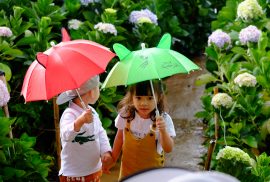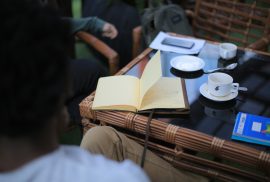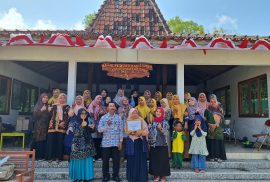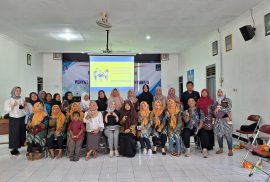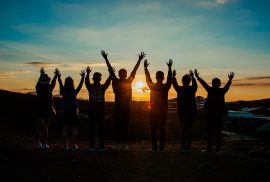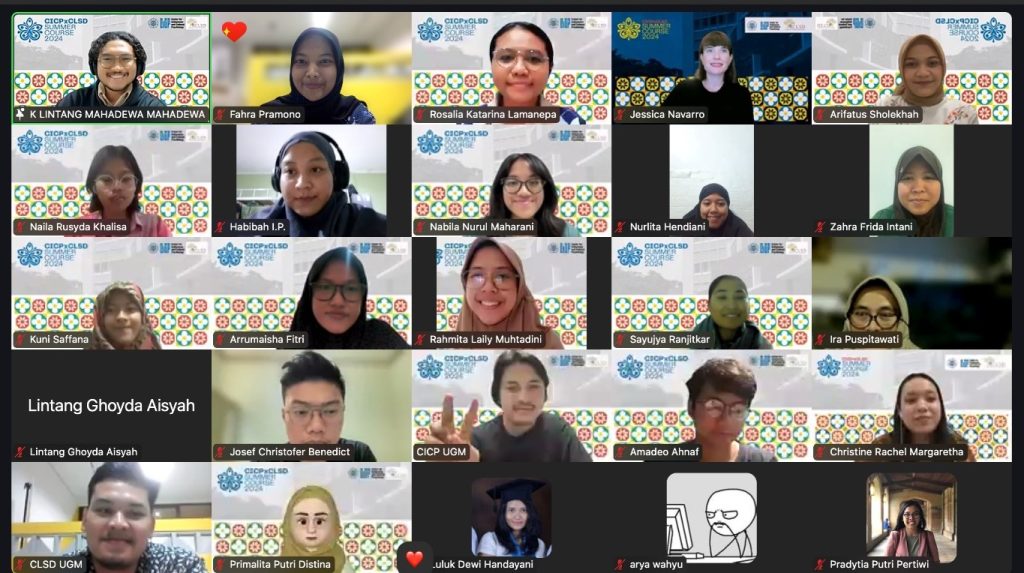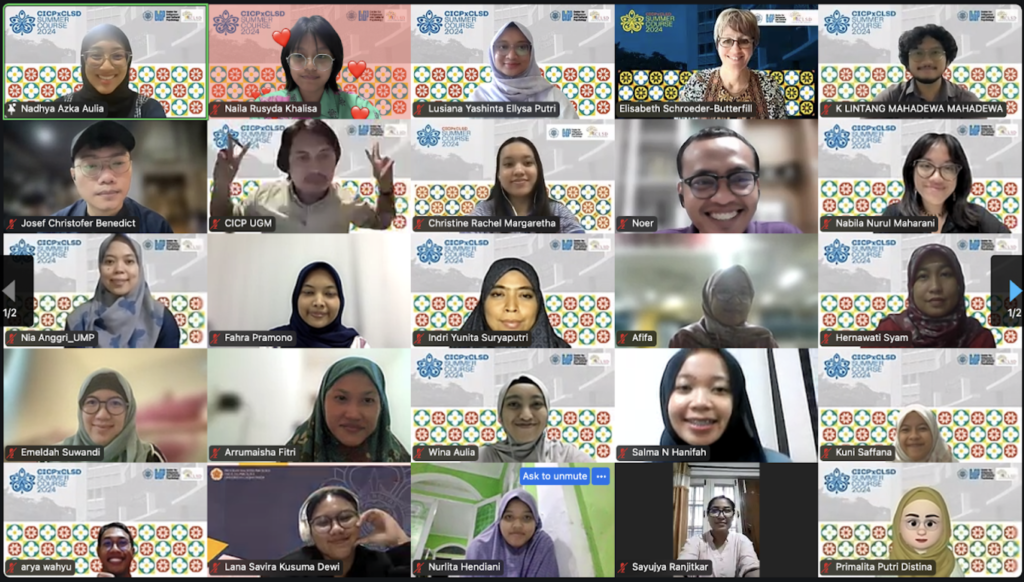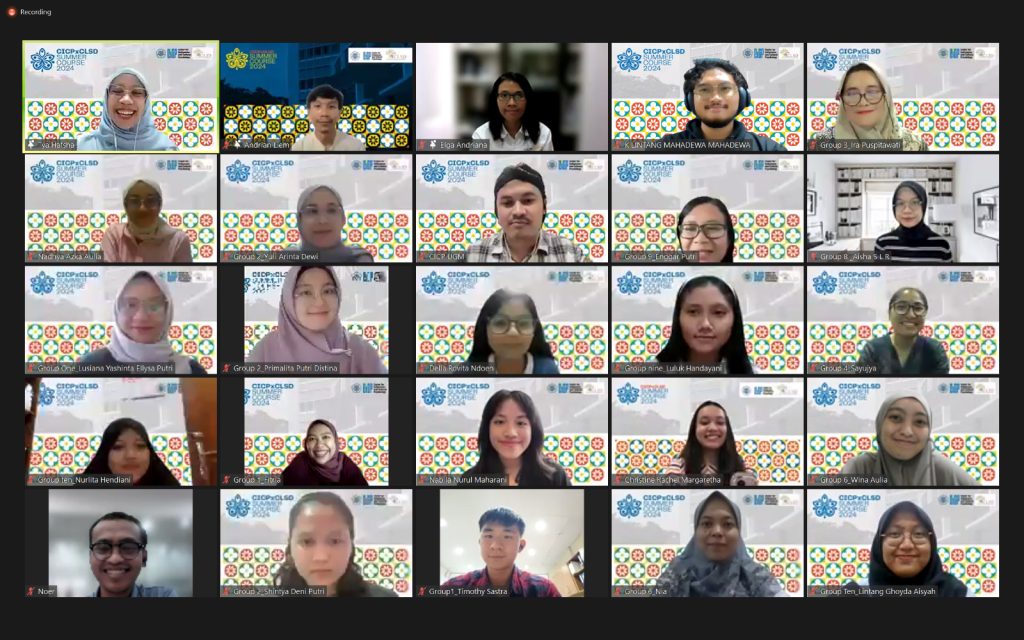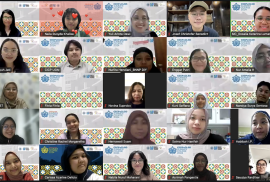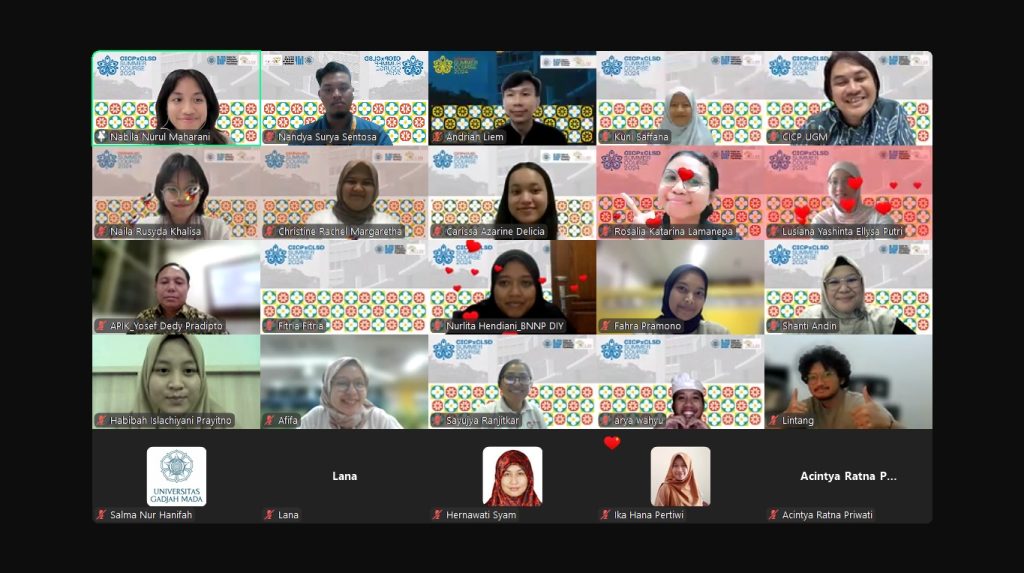Oleh: Fitria | Penyunting: Muhammad Ikbal Wahyu Sukron, S.Psi., M.A.
“By speaking your childs’s own love language, you can fill his “emotional tank” with love. When your child feels loved, he is much easier to discipline and train than when his “emotional tank” is running near empty.”
Kutipan di atas merupakan potongan tulisan dari Gary Chapman dan Ross Campbell dalam bukunya yang berjudul The 5 Love Languages of Children. Kutipan tersebut menjelaskan bahwa setiap anak memiliki caranya sendiri untuk merasakan cinta melalui bahasa cinta yang mereka miliki. Ketika orang tua berkomunikasi dengan menggunakan bahasa cinta yang anak miliki, anak akan merasa dihargai dan dicintai. Perasaan dicintai ini dapat dianalogikan sebagai “tangki emosional”. Ketika tangki emosional ini terisi penuh, maka akan lebih mudah untuk mendisiplinkan anak. Sebaliknya, jika anak merasa kurang dicintai, “tangki emosional”-nya akan kosong dan cenderung lebih sulit untuk menerapkan kedisiplinan pada mereka.
Konsep bahasa cinta pertama kali diperkenalkan oleh Gary Chapman pada tahun 1992. Chapman mendefinisikan bahasa cinta sebagai bentuk dari ekspresi perilaku yang sifatnya spesifik. Chapman dan Campbell (2015) kemudian membagi bahasa cinta menjadi lima bentuk, yaitu: kata-kata penegasan (words of affirmation), waktu berkualitas (quality time), pemberian hadiah (receiving gifts), tindakan melayani (acts of service), dan sentuhan fisik (physical touch). Bahasa cinta ini kemudian menjadi sebuah konsep yang menarik di masyarakat, karena bahasa cinta mengisyaratkan bahwa hubungan yang langgeng akan terwujud ketika seseorang mengungkapkan cinta sesuai dengan bahasa cinta mereka (Impett dkk., 2024).
Frasa bahasa cinta seringkali dianggap sebagai istilah populer dalam psikologi. Namun, sebuah artikel ilmiah yang ditulis oleh Bülow (2023) menjelaskan bahwa bahasa cinta merupakan konsep yang telah divalidasi secara ilmiah dan dapat membantu individu dalam memahami diri mereka dengan lebih baik lagi. Kondisi ilmiah ini dapat dilihat dari keterkaitan bahasa cinta dengan neurobiologi, yang memperlihatkan bahwa kondisi otak dan tubuh manusia berbeda satu sama lain tergantung bahasa cinta yang paling sesuai dengan diri mereka (Bülow, 2023). Selain itu, bahasa cinta juga memiliki impilikasi terhadap kondisi kesehatan mental, misalnya terkait relasi antara orang tua dengan anak.
Sebuah studi yang dilakukan oleh Maximo dkk. (2016) menunjukkan bahwa orang tua yang membesarkan anak-anaknya dengan penuh kasih sayang, maka akan membuat anak tumbuh menjadi individu yang tangguh (resilience) di kemudian hari. Orang tua berperan penting dalam membantu anak membangun ketangguhan diri mereka. Dalam konteks ini, tiga bahasa cinta yang berperan adalah waktu yang berkualitas, kata-kata penegasan, dan tindakan melayani. Ketiga bahasa cinta ini akan memberikan dukungan emosional, motivasi, dan bantuan praktis yang diberikan oleh orang tua kepada anak-anaknya (Maximo dkk., 2016).
Orang tua berperan penting dalam menerapkan bahasa cinta di rumah, sementara di sekolah, guru yang menggantikan peran tersebut selama proses belajar. Hal ini tentu menjadi tantangan tersendiri bagi guru maupun sekolah sebagai bagian dari sistem pendidikan yang berkualitas bagi anak. Sementara itu, Indonesia sendiri masih menghadapi tantangan yang cukup besar dalam menyediakan pendidikan bagi tenaga pendidik yang mampu memberikan pengajaran berkualitas kepada setiap siswa (OECD, 2015). Kualitas dalam hal ini tidak hanya dilihat dalam hal akademik, tetapi juga bagaimana anak-anak dapat memperoleh pendidikan yang berkualitas dalam membangun karakter mereka.
Bahasa cinta memiliki keterkaitan yang erat dalam menumbuhkan empati pada anak melalui interaksi yang hangat di sekolah. Ketika guru berusaha memperkenalkan bahasa cinta dan berupaya untuk memberikan kasih sayang kepada anak sesuai dengan bahasa cintanya, sebenarnya guru sedang mengajarkan empati pada anak. Empati dalam hal ini dapat dilihat dari upaya guru dalam memahami dan turut merasakan kebutuhan emosional siswanya. Empati tidak hanya membentuk karakter anak, tetapi berperan dalam membangun kecerdasan moral anak (Borba, 2002).
Pendidikan karakter anak menjadi bagian penting dalam proses membangun pendidikan yang berkualitas. Kondisi ini tidak hanya menjadi jalan untuk mengembangkan moral dan etika pada diri anak, tetapi juga mempersiapkan mereka agar mampu menjalani kehidupan sosial di masa kini maupun masa depan. Hal ini sejalan dengan Sustain Development Goal (SDG) 4 di mana Indonesia diharapkan dapat menciptakan pendidikan yang berkualitas. Lebih lanjut, tujuan ini diharapkan dapat terealisasi dalam point target 4.2) akses yang sama terhadap pendidikan anak usia dini yang berkualitas; dan target 4.C) meningkatkan pasokan guru yang berkualitas di negara-negara berkembang. Untuk mencapai tujuan ini, guru perlu menerapkan pendekatan yang mendukung, misalnya melalui pengenalan bahasa cinta dalam pendidikan karakter. Memperkenalkan bahasa cinta pada anak dapat menjadi salah satu upaya yang dilakukan oleh guru dalam mendidik karakter pada anak sehingga mereka dapat tumbuh dengan penuh kasih sayang dan berdampak pada kualitas pendidikan yang lebih baik. Kondisi ini akan menciptakan iklim pembelajaran yang lebih hangat karena guru dianggap sebagai sosok yang menyayangi sehingga “tangki emosional” anak pun terpenuhi dengan cinta. Sebuah studi yang dilakukan oleh Parker dan Sudibyo (2024) menunjukkan bahwa ketidakhadiran guru yang baik hati, murah hati, serta membantu siswanya dapat menjadi salah satu penyebab mengapa generasi muda meninggalkan bangku sekolah lebih awal. Oleh karena itu, penerapan bahasa cinta dalam proses belajar penting untuk dilakukan, karena anak akan merasa dihargai keberadaannya dan membantu dalam menciptakan lingkungan belajar yang positif.
Referensi
Borba, M. (2002). Building moral intelligence: The seven essential virtues that teach kids to do the right thing. Jossey-Bass.
Bülow, P. (2023) Love languages: The science and your mental health. Journal of Science, Humanities, and Arts. 10(3).
Chapman, G., & Campbell, R. (2015). The 5 love languages of children. Northfield.
Impett, E. A., Park, H. G., & Muise, A. (2024). Popular psychology through a scientific lens: evaluating love languages from a relationship science perspective. Current Directions in Psychological Science, 33(2), 87-92. DOI: https://doi.org/10.1177/09637214231217663.
Maximo, S. I., & Carranza, J. S. (2016). Parental attachment and love language as determinants of resilience among graduating university students. Sage Open, 6(1). DOI: https://doi.org/10.1177/2158244015622800.
Parker, L., & Sudibyo, L. (2022). Why young people leave school early in Papua, Indonesia, and education policy options to address this problem. Compare: A Journal of Comparative and International Education, 54(1), 146–162. https://doi.org/10.1080/03057925.2022.2084037.
OECD/Asian Development Bank. (2015). Education in Indonesia: Rising to the challenge. OECD Publishing. DOI: http://dx.doi.org/10.1787/9789264230750-en.


